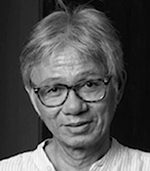SUMMARY
This is AI generated summarization, which may have errors. For context, always refer to the full article.
![[OPINION | NEWSPOINT] The specter of succession](https://www.rappler.com/tachyon/r3-assets/612F469A6EA84F6BAE882D2B94A4B421/img/1A6DEE3CB66C44DCAB63D59EE49AEB7A/the-specter-of-succession-june-1-2019.jpg)

New suspicions have arisen about President Duterte’s health. These were provoked by his disappearance from public view for 10 days, the longest during his incumbency, and heightened by attempts to cover it up with pictures and video clips taken from his healthier days and passed off as current.
The 74-year-old President last appeared on May 13, to cast his ballot in the midterm elections, before reappearing on May 23, at the graduation rites of the Philippine Military Academy. But his reappreance inspired little reassurance about his condition. He passed the more strenuous parts of his role at the rites to a substitute, notably that part requiring him to stay long on his feet, like handing out the diplomas. Defense Secretary Delfin Lorenzana would say later that he was told to stand in because the President felt sleepy.
He definitely looked worse. Ashen-faced has become his normal look, but he sat slouched and had his eyes closed at unusually frequent and long intervals. A woman peered over his backrest with a caregiver’s dutiful keenness, and his perennial sidekick, Bong Go, now a senator-elect, stuck out his worried face now and again from a crouched position at his elbow.
He had to be helped as he rose from his chair to take a couple of steps to the lectern. His speech took only 8 minutes – he normally goes on and on, whether speech-making, giving a press conference, or karaoke-ing – but he managed to insert his wonted cuss interjection at least once and found an excuse to use the word “rape” a few times, in an apparent joke, which either went flat or was lost altogether on his audience.
He had arrived more than two hours late. If he had not come he was certain to have become even more conspicuous by his absence with his seat empty while the one beside it was filled brightly by Vice President Leni Robredo, who is commanded by the Constitution to succeed him once he becomes incapacitated. He just had to drag himself up and go; he would certainly be afraid to leave the presidency to the leader of an opposition that his regime not only emasculated but persecuted.
In fact, he cannot risk a successor who cannot guarantee him immunity from prosecution – plausibly for treason, in ceding to China control over the resource-rich West Philippine Sea; for extrajudicial killings in his war on drugs; for unexplained wealth, in his secret accounts; and for abuse of power, in the prosecution and detention of some of his critics on implausible charges. Indeed, he can ill afford to be out of power.
Such prospects of eluding accountability are brightened in fact by the outcome of the elections: his coalition swept the senatorial races 12-0, increasing its majority to 20-4. That should ease the passage of constitutional amendments providing for a shift to a federal system, the ploy that gives his regime a chance to perpetuate itself in power by arranging that it be the overseer of the long-drawn-out transition to federalism. The amendments have passed the Lower House, and are up at the Senate for vetting, before they go to a national vote.
But it seems that even inside the regime Duterte’s health has been an issue – he may not be able to hold up long enough. On the fourth day of his disappearance, the police presented to the press a man accusing the opposition, naming Robredo among others, of enlisting him in a plot against Duterte. The intent presumably was to invalidate her preeminent right to succession by cooking up some legal groundwork for a case of rebellion against her.
In the end, though, the police themselves admitted that they had nothing on the confessed plotter that would warrant further investigation, let alone prosecution. Duterte, in the meantime, was back in the public view, and enough new life has since been pumped into him to enable him to manage a relatively active 3-day visit to Japan.
No law, to be sure, compels the President to make his state of health public – martial law or no martial law, Ferdinand Marcos did not have to reveal his kidney transplants.
Duterte may have been more open, but never to the extent of revealing any particular medical condition. For the longest time the most serious speculations revolved around fentanyl, the potent opioid he admitted taking. Lately he has been going for hospital checkups, although, according to his spokespersons, not for anything serious.
But the specter of succession betrayed in the frantic efforts undertaken by his political heirs tends to belie that. – Rappler.com
Add a comment
How does this make you feel?
There are no comments yet. Add your comment to start the conversation.